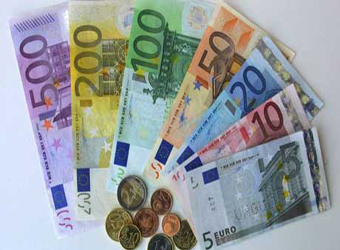The euro held firm on Thursday as investors quickly switched gears after upbeat German data dampened the chances of an imminent interest rate cut from the European Central Bank.
Expectations had been growing for the ECB to ease since data last week showed an alarming slowdown in inflation. But a surge in German industry orders in September and steady private sector growth in Europe’s largest economy in October, cast doubts on whether the ECB would act so soon.
“The recent data enables them to wait till December and announce the rate cut as part of their broader inflation/growth forecasting exercise,” JPMorgan analysts wrote in a note to clients.
As a result, the euro bounced to a high of $1.3548 on Wednesday and stood at $1.3520, flat on the day but pulling away from a near two-month trough of $1.3442 set on Monday.
Against the yen, the common currency climbed as high as 133.72 yen and last stood at 133.30 yen, off a near one-month low of 132.36 plumbed Tuesday.
The ECB meets later on Thursday and is expected to resist pressure to cut interest rates, a Reuters poll of 23 traders showed.
“I don’t think they will cut rates but given the fall in inflation, there will be expectations of a rate cut in the future,” said Kyosuke Suzuki, director of forex at Societe Generale.
“The biggest event for today would be analyzing the nuance of (ECB President Mario) Draghi’s comments. If he says things like there was a discussion on rate cuts, that would cement expectations of more easing,” he added.
David Song, currency strategist at DailyFX, noted there seemed to be growing concern among European officials that the persistent strength of the euro was becoming a greater drag on the recovery.
“We may see ECB President Mario Draghi implement his own style of verbal intervention as the outlook for growth and inflation remains subdued,” he warned euro bulls.
The livelier euro helped knock the dollar index .DXY to 80.48, off seven-week high of 80.93 hit on Monday.
The dollar could regain its footing if the U.S. July-Sept GDP data, due at 1330 GMT, shows solid growth and firms expectations that the Federal Reserve could soon scale back its stimulus program.
Even more important for the Fed’s policy outlook would be Friday’s U.S. jobs report for October, which could provide some insight into the economic effects of the government shutdown.
The dollar held its ground against the yen at 98.63, yen — within reach of a two-week peak of 98.86 set Friday.
The Australian dollar lost was knocked down by a soft Australian jobs report, which showed full-time jobs dropped the most in 16 months.
The Aussie fell 0.6 percent to $0.9472, having almost erased its gains so far this week.
“It looks a bit tough the Aussie to stay above $0.95 considering that the Australian central bank would seem eager to talk down the currency at such a level,” said Koichi Takamatsu, head of forex at Nomura Securities.
Source: Reuters
